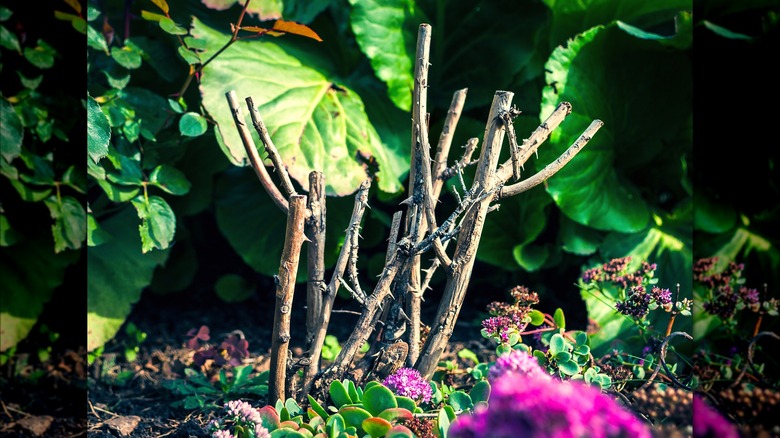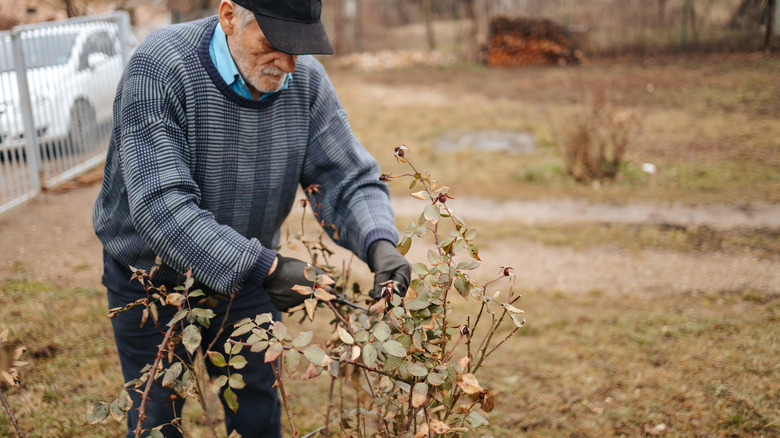At just over 20 years old, knockout roses are pretty new to the plant scene. These hybridized roses were developed by William J. Radler, giving homeowners a way to grow these gorgeous blooms with less fuss and fewer chemicals. Their ancestors, the heirloom or heritage rose, have been around for centuries. Developed from wild roses, these flowers have become an aromatic addition to landscaping for as long as they have been in existence. Unfortunately, heirloom roses are more prone to disease and require more effort than knockouts, pressing the latter to grow in popularity. If you are a lover of all kinds of roses, you may have a mixture of knockout and heirloom varieties. To keep each type growing prolifically, you need to know what kind you have and how to prune it correctly.
We have mentioned that heirloom roses come with challenges. They have not been bred to resist disease and are more prone to fungal issues, but if you can keep them healthy, they will reward you with gorgeous blooms and a scent that knockouts cannot provide. Conversely, while knockouts may not be as showy and heavily scented, they are perfect for those who want the beauty of a rose without a lot of work.
Pruning Knockout roses

Knockout roses are hard to kill, so when you are preparing to prune yours, there’s no need to worry about doing it wrong. The only consequence of bad pruning is that you can end up with an odd shape until it’s time to prune again. Knockout roses should be pruned in late winter before they start showing signs of new growth. In most of the US, this time frame falls around Valentine’s Day. If it’s hard to remember when to prune, just keep in mind that roses are inextricably connected to this holiday.
Garden work doesn’t get much easier than pruning knockout roses. Wear protective rose gardening gloves to spare yourself many scratches from thorns, and use loppers to cut all the canes down to 1 foot tall. This may seem drastic, but these roses grow about 3 feet every season, so this extensive yearly pruning will help keep the bush a manageable size while it provides you with blooms all season. After trimming your knockout roses, look for any damaged canes near the ground and remove those with pruning shears. Once you discard the cuttings, the whole process has been completed in just a few minutes.
Pruning Heirloom roses

While most people prune heirloom roses in February, they can also be pruned in the fall after they have finished blooming. This is the best option if your roses are exposed to harsh winter winds, which can whip around and damage longer canes. For this type of pruning, cut each cane back to about 3 feet tall.
Spring pruning is more about shaping the bush to a desired size while removing damaged and old canes. Do not prune heirloom roses like you would knockouts because they don’t grow as quickly, resulting in far fewer blooms. Trim the canes so they are about 3 to 4 feet tall. Once the plant is 4 years old, remove the oldest canes from the ground so you have no more than six. This relatively new growth will provide the best floral display. Remove all dead and damaged growth.
This is when it is really important to know what kind of heirloom rose you have. Some of these older cultivars only bloom on old wood. If your roses only produce flowers once a year, they are considered “once blooming roses” and should be pruned immediately after they have finished their display, usually in mid to late summer.



